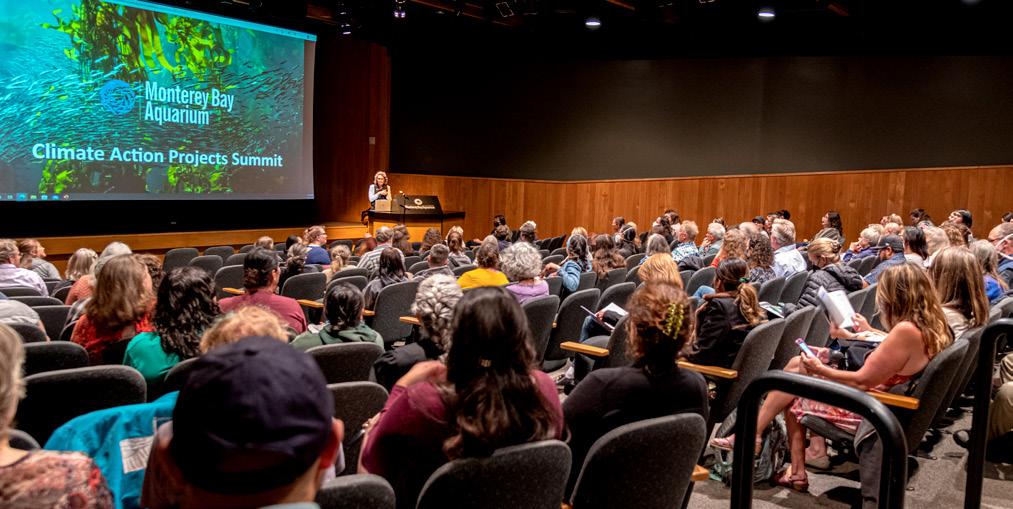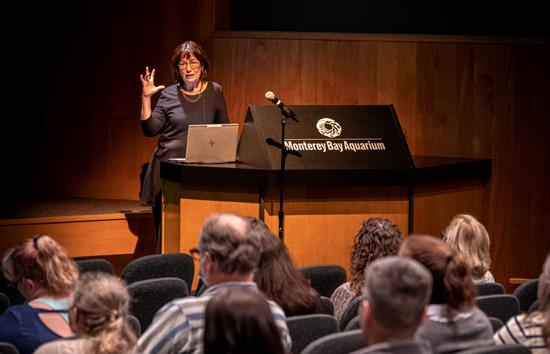
1 minute read
Climate power
Talking about climate change can be anxiety-provoking. The facts can quickly become overwhelming, which can lead to paralysis — the opposite of the commitment to action we need if we’re going to address the daunting challenges ahead.
That’s why educators taking part in our second Climate Action Projects Summit learned how to foster resilience in kids — and adults – through a technique that helps process feelings that come with the facts.
During the summit’s keynote address last October, author and climate psychology educator Leslie Davenport shared researchbased resilience tools such as telling stories of hope and other positive neurofeedback techniques like the “doggy shake.” The technique helps release stress in our bodies so we can stay engaged in finding solutions. It’s a tool educators can take back to their classrooms.
Davenport’s address is one way the yearlong summit helps classroom teachers build their knowledge and confidence to teach about climate change and guide their students in identifying, designing, and implementing climate-related solutions.


